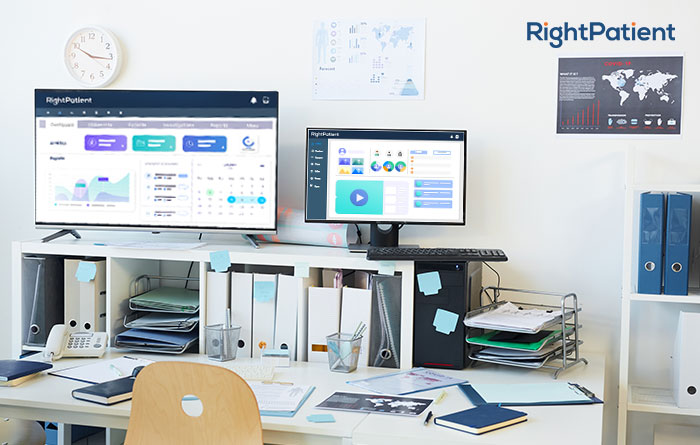Medical Identity Theft Prevention Becomes Crucial as Telehealth Usage Rises

The novel coronavirus, infamously known as COVID-19, is a phenomenon that has changed our lives forever. Wearing masks, using sanitizers, and practicing social distancing has become a part of our daily lives, especially for those who need to leave their houses every day. It has disrupted business operations and even forced many into bankruptcy, causing businesses to shut down. One of the most affected industries is healthcare, and it is safe to say that the US healthcare system has been severely affected by the pandemic. Hospitals have shut down, and those that are open are facing unprecedented losses. However, telehealth has experienced a meteoric rise in both popularity and usage. While more patients and caregivers are adopting telehealth, healthcare providers need to ensure that such visits are not plagued with medical identity theft cases. Let’s take a look at the rapid rise of telehealth, how people are adapting to it, and how medical identity theft prevention can be ensured with RightPatient.

Telehealth is becoming mainstream
Let’s take a look at a recent survey by Amwell. The research sheds light on the fact that patients and caregivers are far more open to using telehealth now compared to the pre-pandemic period. The numbers clearly illustrate this: in 2019, 8% of patients and 22% of caregivers had virtual sessions, whereas in 2020, the number is around 22% for patients and a whopping 80% for caregivers. This is predominantly because the pandemic forced hospitals to shift their focus to the COVID-19 patients, leaving others with the option to get treated via virtual sessions rather than inpatient visits.
Some of the key findings from the study regarding telehealth are:
More scheduled virtual visits compared to urgent care visits
According to the survey, patients leaned towards scheduled virtual visits compared to urgent care visits. 54% of patients had scheduled virtual visits with their physicians, whereas 21% of patients who had at least a virtual visit had an urgent care visit as well during 2020.
Virtual specialty care is growing rapidly
Unsurprisingly, telehealth is being used by more patients every day. 42% of patients had virtual visits with their regular specialists, and 13% had virtual visits with new specialists this year. Moreover, specialists such as cardiologists, surgeons, and others stated that they had seen more patients virtually compared to 2019. This led to specialists being more open to telehealth as well – it was the only way to treat some patients due to COVID-19.
More patients were opting for telehealth
2020 had three times the number of patients using telehealth compared to 2019. 59% of the patients who used telehealth stated that their first usage was during the pandemic, and an overwhelming 91% of the patients were “very” or “somewhat” satisfied with the visits.

Healthcare providers, on the other hand, said that they saw almost four times more patients this year compared to 2019, and 84% of providers were “very” or “somewhat” satisfied with the platforms.
Medical identity theft prevention must be ensured
While all of the above statistics show that telehealth has a promising future ahead, it also has to ensure patient safety. There are many risks associated with conventional inpatient visits such as medical identity theft, patient misidentification, medical errors, and so on. While not all of these issues will bleed over to telehealth, many experts are predicting that telehealth might witness medical identity theft cases. Thus, responsible caregivers should ensure medical identity theft prevention to secure safe, undisrupted healthcare visits – for both virtual and inpatient visits.
How data breaches, medical identity theft, and telehealth are related
Healthcare data breaches are becoming common because hackers can steal patient information and sell it for up to $1000. Data breaches are endless nightmares for healthcare providers – causing HIPAA compliance issues, loss of goodwill, unwanted publicity, and finally, medical identity theft. Fraudsters buy the information from the hackers to assume the identities of the patients and use the victims’ healthcare services illegally. Since many healthcare providers don’t have robust patient identity verification systems, they are unable to identify the scammers. These are the cases that occur within healthcare facilities.
Telehealth has been largely ignored in the pre-pandemic world. People were debating about its pros and cons, and since it didn’t provide the same level of flexibility as conventional healthcare, its future was uncertain. However, the pandemic changed the public’s perception regarding telehealth. As the statistics above demonstrated telehealth’s acceptance, experts have predicted that hackers and fraudsters will focus on it as well. If they acquire the login credentials of patients, fraudsters can also impersonate the victims during telehealth sessions, committing medical identity theft virtually. Thus, medical identity theft prevention becomes crucial.
RightPatient ensures medical identity theft prevention
Thankfully, healthcare providers can prevent medical identity theft with RightPatient. It is a touchless biometric patient identification platform that uses the faces of the patients to prevent healthcare fraud and protect patient data. With a powerful photo-based engine, RightPatient ensures that the patients are who they say they are. After scheduling appointments, patients receive an SMS or email and they need to provide a personal photo and a photo of their driver’s license to verify their identity. The platform automatically matches the photos, ensuring remote identity verification.
RightPatient ensures accurate patient identification across the continuum of care, starting right from appointment scheduling. During hospital visits, all the patient needs to do is look at the camera – the platform matches the current photo with the one saved during registration, creating a touchless, easy, and hygienic experience. RightPatient is preventing duplicate medical records, reducing claim denials, preventing medical identity theft, and enhancing patient safety for leading healthcare providers. Be a responsible provider and protect patient data with RightPatient now.









Leave a Reply
Want to join the discussion?Feel free to contribute!